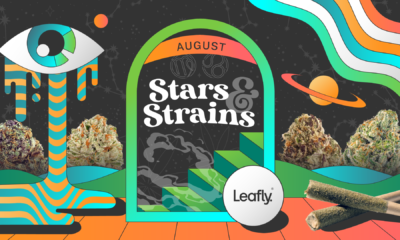“We’re just trying to figure out what exactly is going to happen and what is not going to happen before we really start doing anything.”
By Alander Rocha, Alabama Reflector
A bill aimed at regulating consumable hemp products has landed on Gov. Kay Ivey’s (R) desk, but its future is uncertain.
HB 445, sponsored by Rep. Andy Whitt (R-Harvest), would establish regulations for consumable hemp products in Alabama, but the bill’s language and potential consequences have led the hemp industry to suggest the possibility of litigation and led to uncertainty among lawmakers, business owners, patients and lobbyists.
“It is my hope that the governor signs the bill this week. I think it’s a good piece of legislation. I think it’s a bipartisan piece of legislation, and certainly, we have to get the guardrails up on this industry,” Whitt said in a phone interview Tuesday.
Key provisions of the bill include:
- Testing and labeling requirements for all consumable hemp products.
- Caps of 10 milligrams per individually wrapped product, with a cap of 40 milligrams per package.
- Authorization for the Alcoholic Beverage Control (ABC) Board to license retailers of these products.
- Restrictions on retail establishments selling hemp products.
- Prohibition of sales to minors.
- Prohibition of smokable hemp products and restrictions on online sales and direct delivery.
- Imposition of an excise tax on consumable hemp products.
The bill defines “consumable hemp product” broadly as any finished product intended for human or animal consumption that contains any part of the hemp plant or its derivatives, but explicitly bans smokable hemp products and certain psychoactive cannabinoids.
It’s unclear whether the bill would ban CBD, a non-psychoactive cannabinoid found in hemp. According to the bill, “any smokeable hemp product” not limited to “plant product or raw hemp material that is marketed to consumers as hemp cigarettes, hemp cigars, hemp joints, hemp buds, hemp flowers, hemp leaves, ground hemp flowers, or any variation of these terms to include any product that contains a cannabinoid, whether psychoactive or not.”
Disagreement among lawmakers
The bill was replaced with a substitute on the floor that had not been discussed in the Senate committee hearing, and a copy was not made available to the public until after its passage. Molly Cole, a lobbyist for the Alabama Hemp and Vape Association, said she wished a senator had asked for the bill to be read on the floor.
“When Sen. Melson came onto the floor and proposed this bill for the substitute,…no one called for it to be read on the floor. And then the way he proposed it was that all this bill does is move products to 21 and up stores,” Cole said, which she felt was misleading.
Even the bill’s sponsor and the senator who handled the bill in the upper chamber appear to be at odds over its implementation.
Sen. Tim Melson (R-Florence), whose bill aimed at hemp regulation failed in committee but who handled Whitt’s legislation in the Senate, said in an interview Tuesday that he was uncertain about whether the bill bans hemp-derived THC vapes. He thought that hemp-derived vapes could still be purchased in a 21-plus vape shop.
“The hemp vape products, yes, anything with the THC would go to, my understanding…they would go to vape stores. But that being said, I’d have to double check now that you got me questioning,” Melson said.
Whitt, however, was clear on the matter.
“Any smokeable, any inhaleable product, is banned under this legislation. Vapes would be banned as well that had delta-8 and [delta]-9 in those,” he said.
Delta-8 THC and delta-9 THC are psychoactive compounds found in cannabis, according to the U.S. Food and Drug Administration (FDA).
‘Our future in Alabama is uncertain’
Representatives of the hemp industry strongly oppose the measure, warning of consequences for both businesses and consumers.
Carmelo Parasiliti, founder and CEO of Green Acres Organic Pharms in Florence, pointed to the potential damage the bill could have on his business. Parasiliti said that nearly every product they currently offer is federally legal and lab tested. Under HB 445, he said, it would all be illegal.
“We’re going to keep our storefront open and serve Alabama to the best of our ability, but our future in Alabama is uncertain, and I’m really hoping Gov. Kay Ivey will veto this bill if she truly supports small businesses,” Parasiliti said in an interview Tuesday.
He also pointed to potential harm to people who benefit from hemp medically, particularly those in a cancer program he started to provide free or low-cost hemp-derived products to people referred by providers.
“Even more troubling is the bill makes it unlawful to give these products away to people in need, no matter their condition, which I think is cruelty,” Parasiliti said.
Nancy Owen Nelson, a cancer patient living in Florence who uses hemp, mostly CBD, for symptom management and a participant in the Green Acres Organic Pharm cancer program, said she was disappointed with the bill. Nelson said he plans to write a letter to Ivey encouraging her to veto it. She said she tried to leave a voicemail but found it was full.
“The thing about this condition is that it is not anywhere in particular, so it is a whole body sensation, and a whole body fatigue. It helps me sleep, it helps me rest, and it helps me feel calmer,” Owen Nelson said.
Whitt and Melson say that the bill’s primary objective is to protect children and regulate an industry that has operated largely unchecked. Owen Nelson said she agrees with regulating the hemp industry but feels the bill goes too far, and that she wasn’t sure if the bill would accomplish its intent of limiting access for minors, saying that children will find a way to these products.
“It’s the responsibility of the vendors to not sell children and the families to protect their children within their homes,” she said.
—
Marijuana Moment is tracking hundreds of cannabis, psychedelics and drug policy bills in state legislatures and Congress this year. Patreon supporters pledging at least $25/month get access to our interactive maps, charts and hearing calendar so they don’t miss any developments.

Learn more about our marijuana bill tracker and become a supporter on Patreon to get access.
—
Whitt felt strongly that the need for “guardrails” on the hemp industry, saying it was his goal to rein in “the wild west of what’s been derived out of the 2018 Farm Bill.”
The 2018 Farm Bill removed hemp and any cannabis product with no more than 0.3 percent THC by dry weight from the definition of marijuana under federal law.
Confusion in the industry
Molly Cole, a lobbyist for the Alabama Hemp and Vape Association, said the industry is confused about how the bill defines consumable hemp product. She also pointed to conflicting implementation dates, which say that the “act shall become effective on July 1, 2025,” but indicate that businesses have until January 1, 2026, to comply.
“That’s causing a lot of chaos and confusion,” she said.
The hemp industry is urging Ivey to veto HB 445. Gina Maiola, a spokeswoman for the governor, did not respond to a request for comment. If the governor vetoes the bill, the Legislature could override her veto, but it’s also unclear whether the Legislature has the votes. The bill passed with a 60–27 vote and 14 abstentions out of the House and a 19–13 vote in the Senate.
Parasiliti said he is hopeful for a veto.
“The governor’s office just celebrated last week small business week, and here we are,” he said. “If this bill is signed and put into law, it’s going to be putting a lot of small businesses out of business.”
Cole said that litigation is being considered, saying that “the entire industry is looking at best practices moving forward, and litigation is being contemplated.”
“We’re just trying to figure out what exactly is going to happen and what is not going to happen before we really start doing anything, but we are discussing it,” she said.
The Alabama Policy Institute, a conservative think tank, also came out against the bill, though for different reasons, claiming on X, formerly known as Twitter, that the bill would legalize recreational cannabis use “under the guise of protecting children.”
Adding to the opposition, Birmingham Mayor Randall Woodfin posted a statement on Facebook saying the bill undermines progress made in cannabis reform and harms small businesses.
“Alabama House Bill 445 is a step backwards and harmful to small businesses in Birmingham,” Woodfin said. “Instead of moving us closer to justice and equity, this bill risks dragging us back to an era of cannabis criminalization, overregulation, and lost opportunity.”
This story was first published by Alabama Reflector.
Pennsylvania Governor Will Put Marijuana Legalization In His Budget, But Top GOP Senator Remains Skeptical

























































